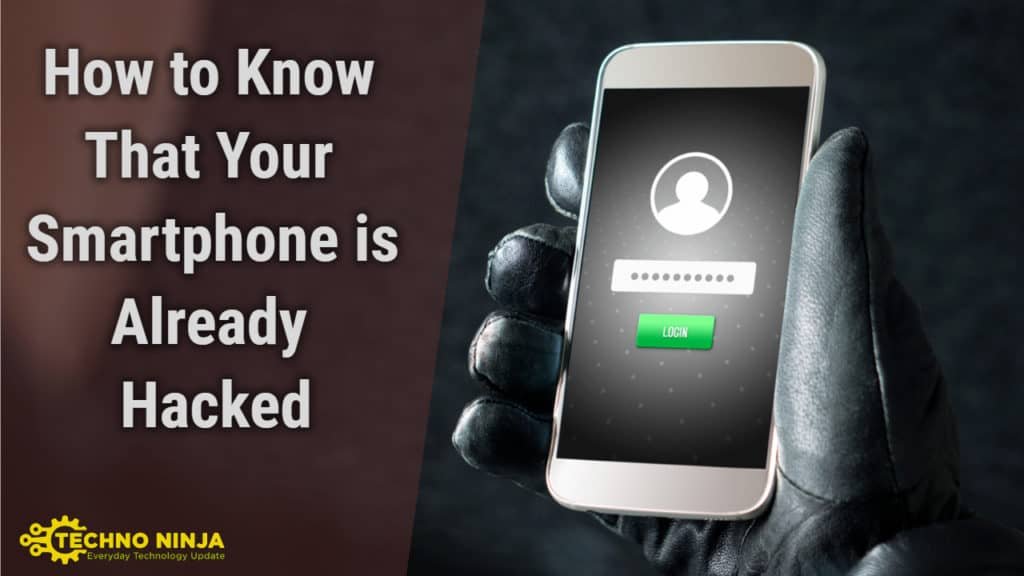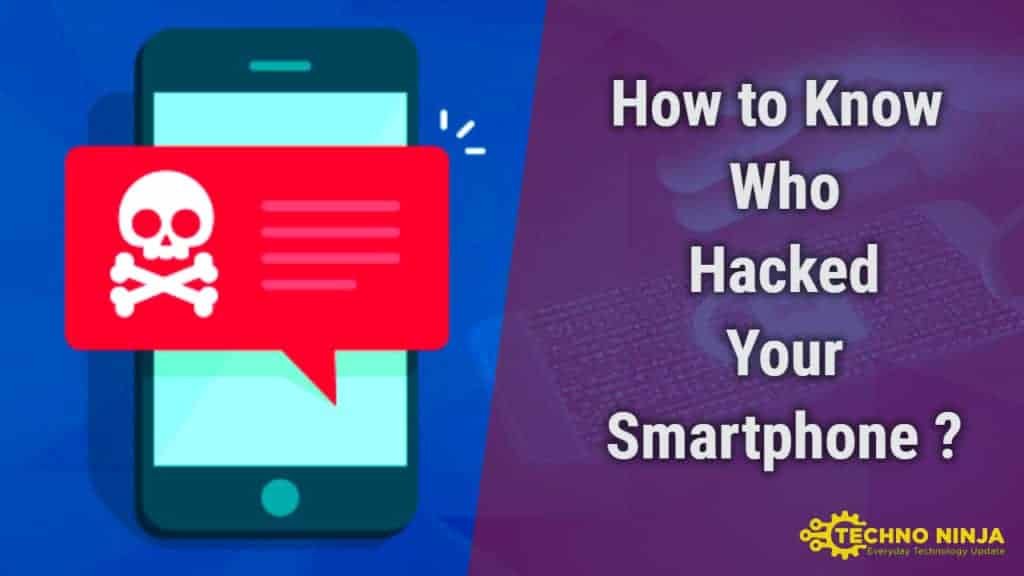The age of smart technology has made our lives remarkably effective. With a leftward movement of our thumb, we can send emails to friends on the other side of the planet. We can pay for heavy groceries without even taking out our wallets.
One can even video chat with friends and relatives for free. And all those little advantages divine in our stacked arrived smartphones but these days protection of our data is of utmost importance. Security these days is critical. Here we have prepared a guide to know if your Android phone is hacked or to fix a hacked Android phone.
Whether you’re worried about a Trojan virus, Malware, spam, botnets, keyloggers, or just the latest type of “Stagefright” virus, you can always do something about it. We will discuss the ways to get rid of malicious viruses and botnets for your Android device and help you be ready and keep yourself safe for the future.
Here, in 2020 smartphones and tablets are just as vulnerable as computers as more than 2.5 billion people own one, which makes them the most susceptible. They are the # 1 target for the wicked. Your phone is a gateway to tons of personal and sensitive information and data, and here are some signs that something may be wrong.
If you think your Android smartphone might be compromised or hacked, we are here to help you. These are the signs to look for, the steps you need to take, and what to look forward to.

Table of Contents
The Risks
Even when you realize that your Android smartphone is not immune to hackers, you might not consider this risk as trivial. After all, you do not have those compromising images or videos on your phone; what a hacker is going to do with them?
Well, you probably are storing sensitive information on your smartphone more than you can think. For once, you’ve probably logged automatically into your social media. An attacker could use this access as an impostor to profit from your contacts or hack your account and do some inappropriate stuff, which might even cause you to lose your job.
Also, suppose you already have done some mobile shopping. In that case, this connection information is probably still on your phone, and you may end up losing money or leaking your bank account details or online banking details. Also, your phone is perhaps synchronized to your computer and a web browser, which is an even more personal information gateway. So how do you prevent this? Well, first, you must understand whether your phone is hacked or infected by malware or a virus.
How to Know if Your Android Smartphone is Hacked
Hacks and viruses on Android phones and tablets are changing all the time. They never look the same, but there are some dead giveaways. However, sometimes a pop-up is nothing more than a pop-up, trying to trick you into clicking on something that will give you a virus or hack into your phone and steal all your data and private information. Nevertheless, these are some signs that something is wrong.
- Random popups and ads
- Malicious fake pop-ups
- Slow Device
- Unexplained Data Usage
- Excessive Data Usage
- Application Crashing without any Reason
- Random Message Charges
- Automatically Unwanted Applications Get Installed
- Extreme Battery Drain or Usage

The Temperature of the Battery is High
If you’ve noticed that your phone is running a lot hotter than usual, this is potentially a piracy sign. Because hackers typically use the software on your device to help track all your data, it requires the processor of your device to work harder and, in turn, generate more heat, which brings us to our next point.
Battery Draining Faster Than Usual
Again, if a hacker installed malware on your device, it will need more processing power to run, in addition to your phone’s operating system and the applications you use. This will inevitably cause your battery to drain much faster than usual, and could be a good indicator that you’ve been hacked, especially if your device is relatively new!
There is some Background Noise
If you hear background noise from your phones, such as echoes, static, or clicking sounds, this may be an indication that your phone has been hacked. The background noise it is usually more noticeable when you are on a phone call and is a potential sign that someone is listening. So it’s probably a good idea to share anything too personal if you hear R2-D2 on the other end of the line.
Distortion (like when you’re on a call)
If you have already used it you are close to another electronic device phone (such as a TV) and noticed a distortion in the audio, even if you are not on a phone call, it could be a symptom that someone hacked your device or maybe even installed hardware (physical component) on your phone.
Applications that can Detect Spyware on your Smartphone
If you think your phone can be hacked, and it is better to install an application that detects spyware on smartphones, you will quickly know if your suspicions are correct or not. Once you have found for sure, the next step is to find out precisely who hacked your phone. Does an anonymous third party? Or even more worrying, is it, someone, you know?
Google is fighting to prevent them and safeguard devices more and more. But not only Google even the smartphone manufacturers – Samsung, Realme, and Xiaomi also keep providing consistent security upgrades to protect their users. Pop-ups are one of the first signs of a harmful virus or hack. They often make noise, flash or stop the vibration motor in the phone, and the back button usually stops working altogether and there. In some of the severe cases, it is also known that the phone won’t allow you to switch it off. If this happens, press the home button (or recent applications) and close all running applications. Do not try to click on anything in your Web browser.
At the same time, a lot of pop-ups are nothing more than pop-ups trying to make you click on an ad or something. Anyway, ignore all, do not click, and never provide your bank details on a pop message. Some of the worst pop-up messages may show a message that you have won a million-dollar lottery which is the best way to lure non-informed Android phone users.
How to Know Who Hacked Your SmartPhone
“Whether a user can determine who is responsible for a compromised phone depends on what type of threat was on the device.”
According to the Data Breach survey, 86% of cyber-attacks are motivated by monetary gain – for example, selling stolen bank credentials or your identity cards to someone on the dark web, accessing financial accounts, or hacking sensitive data and holding the victim hostage. In these cases, hackers usually rely on malware that exploits vulnerabilities in remote applications or operating systems to steal information.

Spyware is malicious software designed to track everything you do on your device. A standard method to install spyware is for someone to plant a hidden spy application on your smartphone. This is most likely to occur if someone has physical access to your smartphone, even if it is just for a short time. It could also happen (even if it is less likely) if you click a suspicious link and download a malicious application disguised as innocent software or your favorite app.
Spyware is often invisible to you as the owner of the device and could give the attacker full access to your data. Moreover, the way it is designed generally means all the details of the attacker are hidden, making them completely anonymous.
However, here we will guide you on how to know who hacked your Android Smartphone – whether a suspicious parent or someone else – and someone who has physical access to your device may also be able to install a spy application that acts as malicious software, tracks your location, photos, messages, and calls.
Find out who has installed spyware on your phone
A great way to fight is to use any security application that can scan and track any hidden spyware, malware, or viruses in your device. They help to identify the name of the spyware that is installed on your phone, letting you know the manufacturer of the spyware software. You can then inform them that someone has installed the software without your permission and ask them to give you the details of the person who bought the original software license.
Here’s an example email that you can send to the software developer to obtain the necessary information:
Dear Sir/Madam,
I have performed a malware scan on my phone and found that there is malware installed on my device. I did not authorize this software to be installed on my phone, and it has been done entirely without my permission.
I, therefore, need to find out who installed this spyware on my device, so please can you provide this information as soon as possible? My phone number is <0123456789> and my device serial number is <zyxnduen12>.
I believe this is all the information you need to retrieve the data from your systems, but please let me know if you need any other help from me.
Yours faithfully
Pantu
Setting a trap for a hacker
Another method you can use is to trap your phone if you think someone might want to infiltrate. This does not guarantee protection against installing anything on your phone or viewing your information, but instead helps your hands or red catch can act as a deterrent – the same as a system alarm at home.
There are mobile security applications for Android that allow users to take a silent picture of anyone who might try to access or hack their phone. In addition to an alarm, this function can be set to trigger whenever someone tries to access your phone or enters an incorrect password multiple times. This feature also comes for Applications on iOS devices.
Check your phone bill
Have you been charged rates for extra texts you never sent – or texts that you have not signed up for? You have probably been infected with malware that forces your phone to send or receive a text that generates revenue for cybercriminals. This form of mobile malware is considered the first type of targeting Android found, back in 2010, and many of today, it is still floating around.
If you are receiving premium text messages, try texting STOP to the number or opt for DND (Do Not Disturb Service) from your network provider. If this does not work, you should contact your mobile operator and block the number.
If your phone sends a text, you may be able to fix it by running a security application such as Bitdefender or McAfee to find and remove malware (only Android security applications for iOS do not have this feature). Also, try removing all third-party messaging applications and all other applications installed just before the phone starts sending texts.
Go Through the Applications Installed on your SmartPhone
If there are applications that you do not remember downloading, look online to see if any of them were considered harmful for malware or other suspicious activity. In this case, the applications have been compromised by a hacker who has not aimed at you but distributes malware scraping to scrape as much data as possible. Malicious software BankBot, for example, is a Trojan that has infected hundreds of Android applications to display a phishing bank screen to steal bank details from users.
“If it was a regular Trojan [malware coded in another application] the user will not be able to identify the person that was responsible for the attack, case If it is a spyware business, it is sometimes possible to find out the person responsible for the attack.”
Check your Flashlight and Battery Saver Applications
Do you have a phone filled with applications and do not remember what application you downloaded? Some categories of applications have attracted more than their fair share of bad actors – many flashlight apps on Google Play have been infected by malware that tried to scrape the financial information of users. Also, you should beware of battery-saving applications because they are often used for malicious software.
If you have these types of applications, check online for all the negative reviews. You can also try to remove them to see if it affects the performance of your phone. “If you install an application and device performance decreases, it is an indicator, and If you uninstall the app and your device begins working properly again, this means that the application is probably infected with malware and you need to avoid the download in the future. ” These hackers can be traced back to the developing team sometimes, but the developers may or may not be at fault too.
Double Check your Favourite Games
Did you download a new super popular game recently? Make sure it works as it is supposed to – and validate by consulting online reviews – otherwise it may be a scam version potentially mounted with malware cryptojacking.
Trojans Cryptojacking extracts the data and information of cryptocurrency users, and their prevalence has increased among smartphone users when infected by attackers can provide high processing power as a whole and probably use that processing power to mine cryptocurrency. The idea is that if crypto jacked hacks other devices, they could be paid for mining without having to use their resources (or pay the electricity bill).
On mobile malware, crypto-jacking tends to hide in innocent-looking apps such as fake versions of popular games. If your phone slows, heats up and its battery is dying before the end of the day – and you tried to improve your battery life, it could be a sign that a malicious application like a Trojan crypto-jacking is monopolizing all the juice.
They are most common on Android – and if you have downloaded the unofficial application markets, the risk is higher.
The worst thing is you can never know who has hacked your phone in crypto-jacking.
Check your Caller’s List
Done all the above and still convinced that someone somewhere has your data siphoned from your smartphone? Or is even stealing your data from your smartphone then keep on reading as we provide you with a guide on how to know if your Android Smartphone is hacked. Apps are not the only way a phone can be infected with malware or directly hacked by a hacker. Have you answered all random calls lately? “Callers offering a free cruise or claiming that you won a lottery scam are likely efforts to hack your information or record your voice.
Click on a “Your Phone has been Hacked” link
If you have recently clicked on a link in a text message or a pop-up, you may have inadvertently, in an unexpected phishing prey. Phishing often creates panic or great emotion- as in scam texts related to coronavirus claiming that the receivers had been exposed to someone with COVID-19 symptoms, and urging him to click for more information or a message where it is written that you have won $100 Million. The sender wants you to contact some random number.
It is often impossible to guess who is behind these scams, but you can report phishing text to your cellular operator as well as your local police station and block these numbers.
Think about the last time you used public WiFi
According to Kaspersky Lab, one of the four hotspots is not secured; someone with malicious intent could set up even those protected by a password. Besides, the protocol (WPA2 or WPA3) that encrypts traffic between devices and routers may itself be vulnerable, as in the severe defects discovered in WPA2 by researchers in 2017 that would have allowed some traffic to be intercepted.
Suppose a VPN does not protect your phone and you are connected to a public unsecured WiFi hotspot. In that case, it is possible that someone could spy on the connection – and scrape your sensitive information if you are connected to your email or bought something online.
Perform a security analysis
Like most malware is designed to avoid detection, you can not find much on your own. Spyware applications software – or stalker war – is a particularly insidious category of applications that purely monitor the activity of the victim (rather than for financial gain).
Security applications, especially for Android, can help determine if your phone has such a malicious application, as well as help repel future cyberattacks, for example, preventing you from visiting malicious Web pages.
Commercial spyware is all too easy to find online. These spy applications have level access to extremely complex information systems on the activity of your device, such as writing messages, taking pictures, and GPS location – and what is more, these applications are not visible.
What to Do if Your Phone Has been Hacked?
Install an application to scan your Smartphone immediately
There are many apps available in the Google Play Store that can instantly scan your phone and notify you of any potential threats it finds in your device. If spyware is detected, you can view the information provided by the app to find out precisely who hacked your phone.

Take steps to eliminate these threats.
For Android phones, it is relatively easy. Most security applications can scan your device for malware and remove all threats found.
If you have an iPhone, removing threats is a manual process, as Apple does not allow security applications in the access areas of the file system where malware usually hides. However, you can remove most of the threats from your iOS device by updating your iOS. Or, if you want to be sure then perform a factory reset – just save your data.
Stop Syncing your Device Immediately
Beware of syncing your device to other devices. Connecting to unfamiliar equipment can be the channel through which spyware will be diabolical and ultimately leach on your smartphone.
Take, for example, the desktop. More than likely, the desktop computer is first in line to attack. Any number of suspicious websites you visit could download malware on the computer. Or something as simple as an out-of-date antivirus program has too many viruses to slip through the cracks. Just how often your office desktop or even your home desktop has been through thorough scanning?
Rethink pairing each connected smart home device you own (smart lighting, smart thermostat, Smart TV, kitchen appliances, and especially home security) to a one-touch solution in the comfort of your smartphone. If it takes a few careless or even lazy approaches to how you secure your phone to leave it wide open for attack, what does it mean for all that you have linked to the phone?
Always have a Security Password to Lock your Smartphone.
Thank you to the dark web, deep web, or even disruptive hands never do well who physically come into contact with your phone, access your PIN security data and others which are the DNA and unique digital fingerprint your phone becomes more accessible and easier. These search engines such as Shodan have unfortunately been distorted by hackers who are always looking for IP addresses, passwords, and other searchable information that only people who do not regularly change their pin and passwords, lock their phones, and do not take their phones synchronized to a bare minimum of other vulnerable devices have. You might as well hand over the keys to your house and car. While you’re there, throw in credit cards for good measure.
Three words: lock your phone. Do not leave it unattended. Android smartphone users enjoy these options by using their fingerprints to lock and unlock their phones. Android users can also take advantage of facial recognition applications as well. And for both platforms always type in your PIN manually.
Never use Autofill
Auto-fill options with a single click of your smartphone may seem like a blessing. Indeed you’ve been to a site that asks you to create a login and password. Google prompts you to save your password. The same can be said for banking transactions and secure payment sites. You can get a quick request to save your credit card information. Never leave your phone to autocomplete passwords, or store your credit card information, social security information, and other hardcore data that could practically be the end for you if in the hands of a hacker.
Hackers drool at the mouth when they stumble upon smartphone owners who leave all their personal information as an open book.
Never let your smartphone auto-fill password, or store your credit card information, social security information, and other data.
Hackers can violate your phone via a simple SMS or malware, and it will take a matter of time to dig through your device to get the critical information they need. This is why it is called identity theft. You left your shoes and socks by the door for them to enter and walk in comfortably. Take these options on the table and remove all automatic filling device settings.
Change your passwords
This is a crucial step. You should change your passwords as soon as possible, once the threat has been removed. This will prevent anyone from unauthorized access to your private accounts. Make sure you use a password, ideally with a combination of uppercase and lowercase letters, numbers, and symbols.
Find the identity of the hacker
Once you know who hacked your phone and potentially how they did it, you can prevent this from happening again in the future. We have provided some clues and tips above on how to track down the hacker or know the personal identity of the person who has hacked your smartphone.
Protect yourself against future attacks
Download any security application from the Google Play Store, and there are many apps available in the market that scan your Android device for any potential hacking threats, malware, or viruses. These applications are configured to do a thorough check into your device and find out if there are any malware, spyware, or viruses in your device. However, if you still want to be extra safe and secure, you can always buy an antivirus for your device.
Verdict
Yes, your smartphone is hackable. But that does not mean it is the nail in the coffin. iOS users benefit from a constellation of applications and security measures that will reset the phone back to factory settings to self-destruct options to wipe all data in the phone in extreme cases completely. Android users have many choices of the same on the table if an attack makes their phone lifeless. But the most important thing is to be careful about how you use your phone for none of these measures will be necessary, and you can finally avoid being hacked. We hope that this guide has made you more self-aware on how to fix a hacked Android phone.






